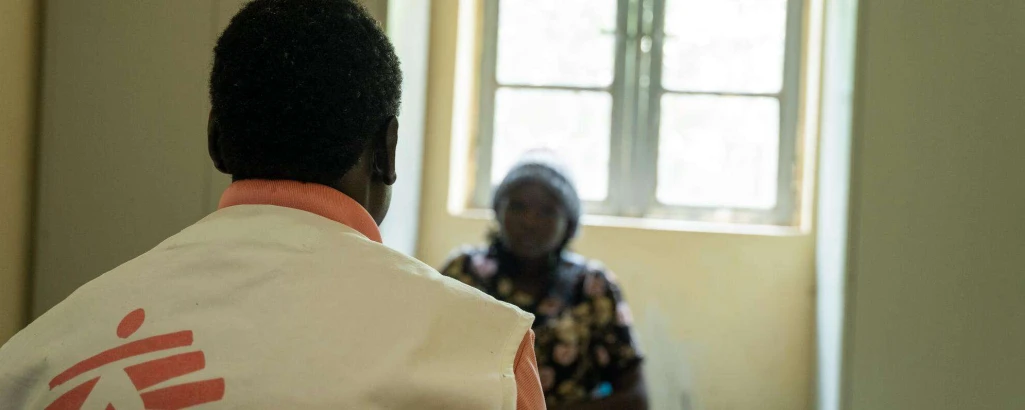
In South
Sudan, poverty, violence, and displacement can sometimes overshadow mental health issues. Neglected by the health
system and confronted by deep-rooted stigma, many people face their mental
health struggles in silence, enduring a daily battle that goes unseen and
unheard.
Doctors
Without Borders/Médecins Sans Frontières (MSF) is one of the few organizations
providing mental health services in South Sudan. “We receive many patients with
post-traumatic stress disorder (PTSD), depression, and postpartum depression
affecting new mothers,” says Germando Kagomba, MSF mental health activity
manager in Lankien. Between January and July 2024, MSF provided more than 9,600
mental health consultations and facilitated group discussions for 54,000 people
across South Sudan. However, these efforts only scratch the surface of a dire
need.
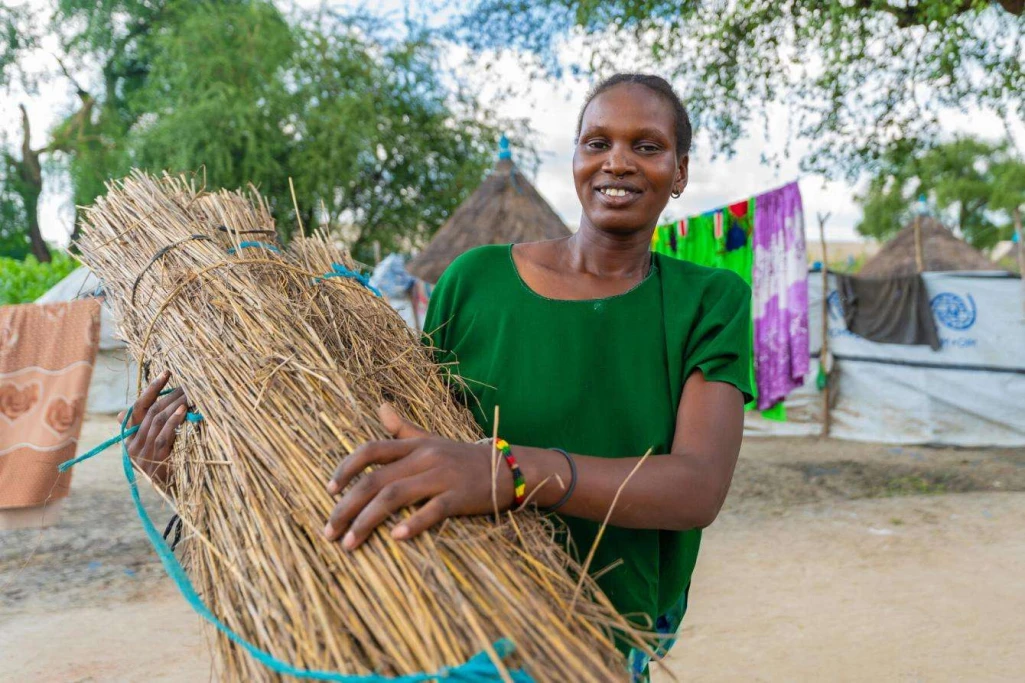
Mary Nyanhial
Kiel fled her home in Paguir at age 12 when armed groups attacked her
village.South Sudan 2024 © Isaac Buay/MSF
When she was
just 12 years old, Mary Nyanhial Kiel had to escape her home in Paguir, South
Sudan, when armed groups attacked her village. “We were forced to flee, and
many people were killed,” Mry recalls. Her parents managed to escape with her
and her siblings, but their ordeal was far from over. “A year later, during a
cattle raid, my father and elder brother were killed while trying to guard our
cattle. We were hiding in the bush—they tried to protect us.”
Some years
later, Mary had to face the loss of a loved one once again. Mary’s husband, who
had gone to Sudan to work as a cattle herder to support his family, never came
back, leaving her as the sole caregiver for her six children. “Now I am all
they have,” she says. “I work at a tea shop, but it’s not enough. We only eat
one meal a day and I can’t afford to send my kids to school.”
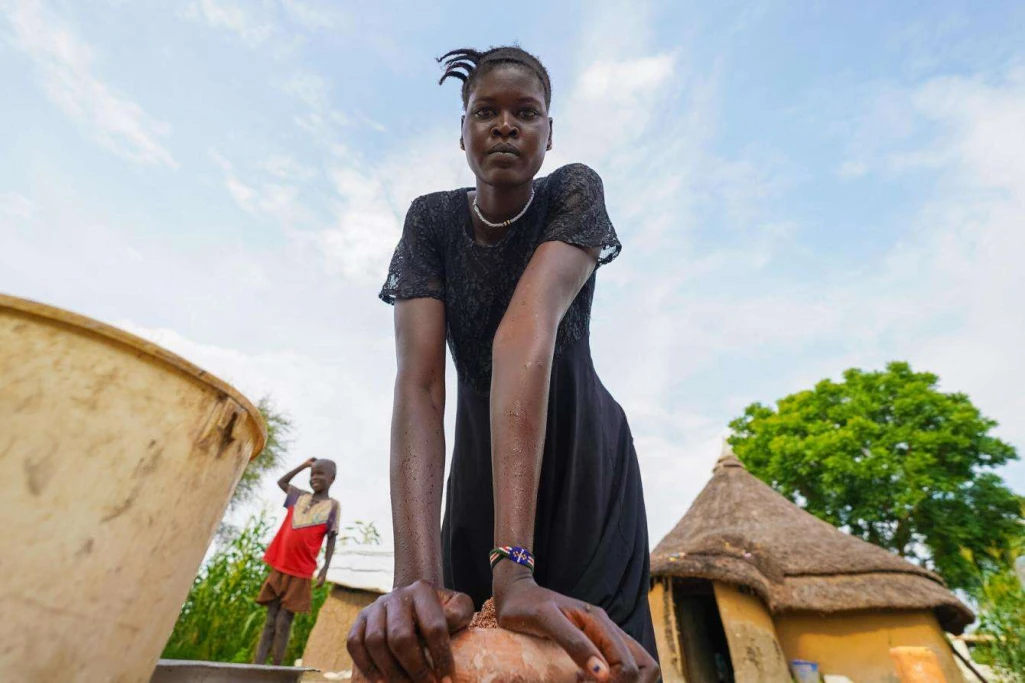
During the
2016 conflict, Nyayong Puol Lam's husband was killed, and just recently she
buried her sister.South Sudan 2024 © Isaac Buay/MSF
The silent
crisis of mental health
You don’t
have to look far to find a story like Mary’s. Just a short distance from Mary’s
home, Nyayong Puol Lam had also experienced an episode of loss some years back.
She was forced to flee her village after seeing her brother and many people she
knew killed.
During the
2016 conflict, her husband was killed, and just recently she buried her sister.
“My sister was killed by her husband who was mentally ill,” says Nyayong. “And
now I’m taking care of her six children and two of my own. With no husband or
brother to support me, it is difficult. The children are too young, and they
don’t understand … I have lost all hope. I am hopeless.”
The
widespread violence has not only displaced families but has also stripped
people of their livelihoods, crops, and any sense of stability. “We are not the
only ones,” explains Mary. “This is happening to everyone in South Sudan.
Everyone is suffering. My mother has no hope; she still thinks that we are
going to die. She thinks my brothers are going to die every day.”
I only talk
about [mental health] during the MSF mental health sessions because here,
everyone is going through the same thing ... if you complain at home, they call
you weak.
Mary, MSF
patient
While primary
health care is scarce in South Sudan, mental health services are even more
limited. There are many people like Mary and Nyayong who have been left to fend
for themselves with little to no access to food, education, or health
care.
Continuous
cycles of conflict, displacement, food insecurity, and extreme poverty have
created overwhelming stress, while the stigma around mental health remains
strong. This stigma is one of several reasons mental health is not talked
about. "I only talk about it during the MSF mental health sessions because
here, everyone is going through the same thing,” says Mary. Yet amid everyone’s
suffering, Mary adds, “if you complain at home, they call you weak.”
Three out of
four patients seeking mental health support through MSF have endured
intercommunal violence, sexual violence, or gender-based
violence. Mental health issues are often complex, and the patients’ initial
need for help might stem from other sources of trauma or stress.
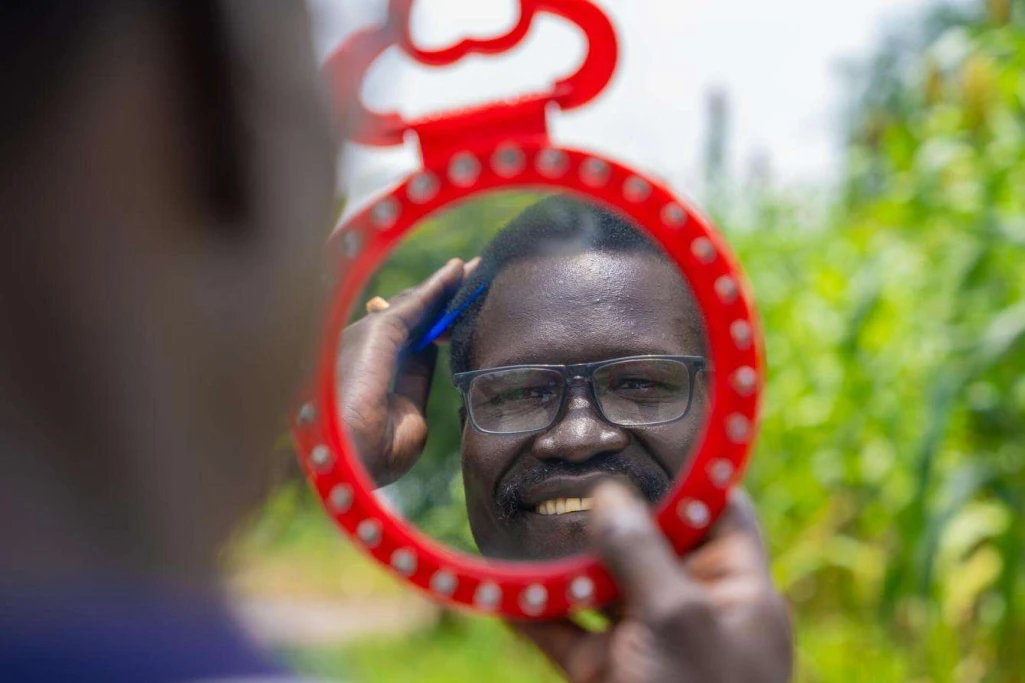
"I’m a
mental health survivor," explains Joseph Alymen Kour, who lives in
Lankien. "I was frustrated, stressed, and hopeless. After counseling I
became healthier. That made me who I am."South Sudan 2024 © Isaac
Buay/MSF
Impossible
choices
When a loved
one struggles with mental health issues in South Sudan, caregivers are often
forced to make impossible choices due to lack of access to treatment. Many lock
their family members away out of fear of the stigma and the violence it might
provoke. In extreme cases, they even resort to chaining them. People suffering
from mental illnesses are often left to languish by the broader society.
Instead of receiving care, they are often confined to prisons or other
unsuitable environments, worsening their condition and deepening their
suffering due to lack of sufficient resources and infrastructure, and because
there are no trained mental health professionals.
“With limited
infrastructure, some patients take up to four days just to reach the hospital,”
Kagomba adds. “So when you have a mental health condition, people don't really
take care of you as they do for others, and the patients who make it to the
hospital do not come back for follow-up.”
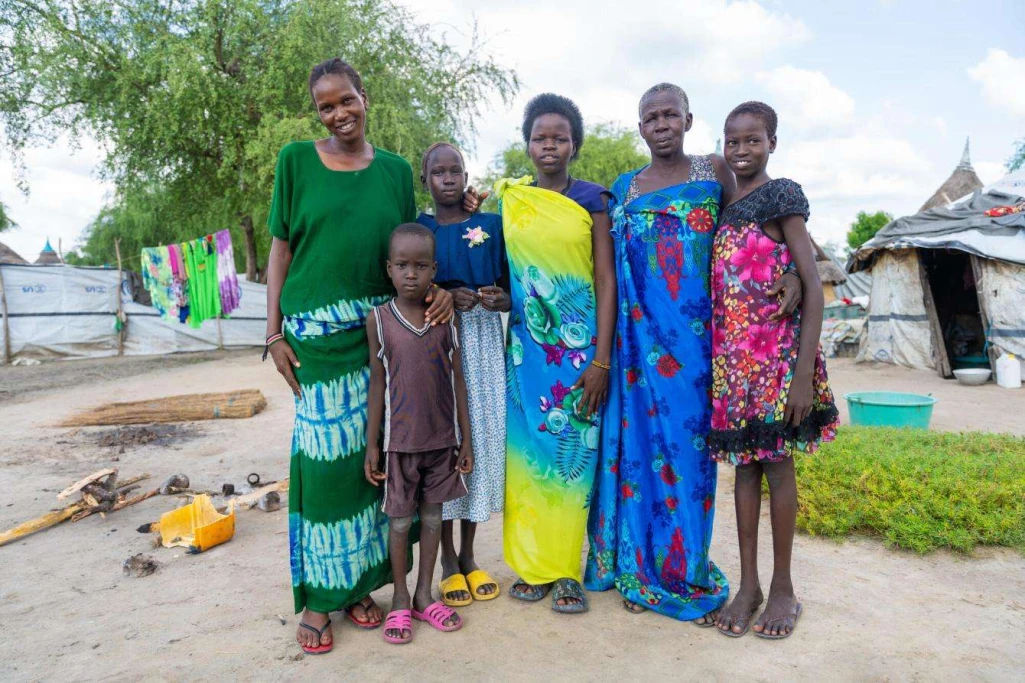
Mary, in
green, with her family at their home in Lankien.South Sudan 2024 © Isaac
Buay/MSF
Long-term
consequences of untreated mental health issues
Untreated
mental health conditions may lead to long-term harm, including the
deterioration of physical health, and can affect not only individuals but
entire generations.
The
significant gap in mental health treatment means that people lacking care are
more vulnerable in their communities, which can further entrench them and their
families in poverty. Limited participation in community activities and
restricted employment opportunities diminish their quality of life. This
situation may also lead to higher rates of teenage pregnancy and domestic
violence. Untreated mental health conditions can also result in higher
mortality rates.
To break the cycle of neglect, mental health care must be integrated into the broader health care system, so people in South Sudan can begin to heal from the deeper scars left by displacement and poverty. Without this change, families like Mary’s and Nyayong’s will continue to struggle, and hope for recovery will remain out of reach.